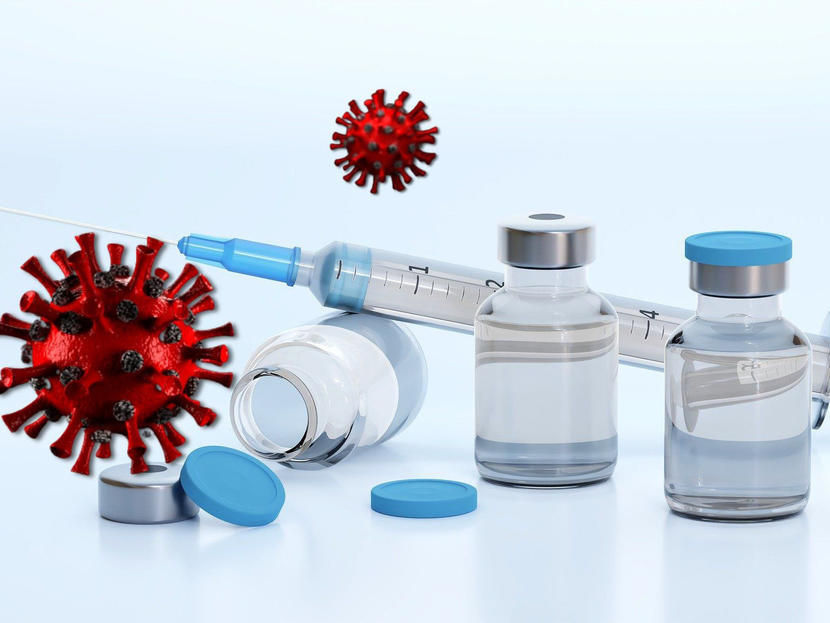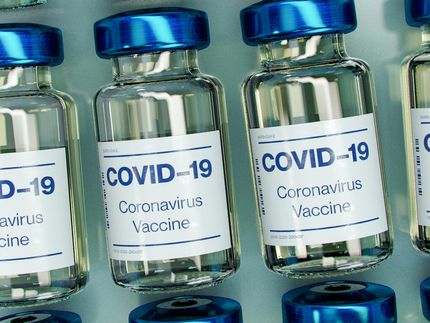Freiburg scientists elucidate immune response after SARS-CoV-2 vaccination
T cells prevent severe disease after prime vaccination
In view of the continuing high numbers of infections, vaccination offers important protection against severe Covid-19 disease. Scientists from the Faculty of Medicine – University of Freiburg have now been able to determine in detail at what time point initial immune protection is established after vaccination with an mRNA-based vaccine and how the reactions of the various components of the human immune system develop over months. The researchers published their results in Nature.
"Already ten days after prime vaccination, there is effective protection against severe disease. At this point, however, neutralizing antibodies preventing the virus from entering cells are barely detectable. Instead, this early protective effect is due to specific T cells controlling the cellular immune response," says Dr. Maike Hofmann, Head of a research group at the Department of Internal Medicine II at Medical Center – University of Freiburg.

Symbolbild
Detailed analysis of the immune response
The scientists examined blood samples from 32 volunteers before prime vaccination and at intervals of three to four days continuously for up to four months after boost vaccination. This allowed them to follow the development of the different components of the immune response in detail. "In the majority of subjects, a relevant increase in so-called CD8+ T cells precisely tailored to the SARS-CoV-2 spike protein could be detected as early as six to eight days after prime vaccination," reports Prof. Dr. Christoph Neumann-Haefelin, Head of the Gerok Liver Center at Medical Center – University of Freiburg.
After boost vaccination, the number of CD8+ T cells increased. Only at this point neutralizing antibodies could be detected in quantities large enough to prevent the virus from invading cells and thus the infection itself. "Our results underscore the importance of complete vaccination with two doses of the mRNA vaccine for adequate protection against infection," Neumann-Haefelin adds.
Highly effective mRNA vaccine technology
The potent combination of a rapid T-cell response and neutralizing antibodies is evidence of the high efficacy of the still-new mRNA vaccination technology. Follow-up studies will have to show how long protection lasts after boost vaccination and when a second boost vaccination - possibly adapted to new virus variants - will be necessary. "The more precisely we understand how the mRNA vaccination works, the sooner we will be able to develop it further for other diseases - for example, for a future vaccination against hepatitis C or a therapeutic vaccination against cancer," explains Prof. Dr. Robert Thimme, Medical Director of the Department of Internal Medicine II at Medical Center – University of Freiburg.
"The fact that important insights into the development of a solid immune response to SARS-CoV-2 could be gained and published within a few months is proof of the great expertise and commitment of our researchers," says Prof. Dr. Lutz Hein, Dean of the Faculty of Medicine –University of Freiburg.
Original publication
Most read news
Original publication
Organizations
Other news from the department science

Get the life science industry in your inbox
By submitting this form you agree that LUMITOS AG will send you the newsletter(s) selected above by email. Your data will not be passed on to third parties. Your data will be stored and processed in accordance with our data protection regulations. LUMITOS may contact you by email for the purpose of advertising or market and opinion surveys. You can revoke your consent at any time without giving reasons to LUMITOS AG, Ernst-Augustin-Str. 2, 12489 Berlin, Germany or by e-mail at revoke@lumitos.com with effect for the future. In addition, each email contains a link to unsubscribe from the corresponding newsletter.
Most read news
More news from our other portals
Last viewed contents
Adriana_Iliescu
Omphalotus_olearius
Category:Cytochromes






















































